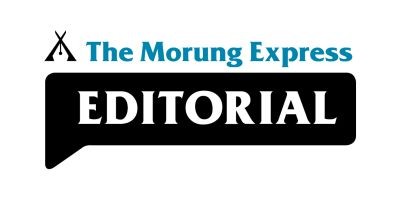
According to information given out by the Chief Election Officer, over 250 candidates have filed nominations for the March 5 Assembly elections in Nagaland. For a small State like Nagaland, this number is quite staggering given that the seats for which election is to be held is only 60. Does this approximate figure of 250 candidates in the fray, then indicate the vitality of our democracy or is there something else to this numbers. It will also be interesting to do a study as to why people are so eager to contest elections? Is this a sign of people’s concern for the present state of affairs? Are those eager to contest election really concerned about bringing about change and addressing issues of corruption, poor infrastructure, unemployment, education, health etc. or is it only about getting control and access to resources once elected. Is the growing participation (i.e of candidates wanting to contest election) a sign of our maturity as a democratic society?
And what about the expenditure incurred for this election. Imagine that on a bare minimum each candidate spends Rs 5 lakh and if we take the 250 odd candidates the total works out to about Rs 1250 lakhs, which is enough to build at least some of our roads, schools and hospitals. Let us also find out where all this money comes from? Given that to contest an election is becoming costlier day by day politicians end up garnering huge financial resources from various quarters to finance elections. Elected at the behest of money power, they would like to reap suitable dividends for the investment they make. This is a vicious cycle and partly explains the amount of corruption there is in the system. There is also new information and evidences that goes to show development funds being siphoned off to sponsor election campaigns in Nagaland. This should worry us because in all likelihood the expenditure incurred during the coming polls will soon be recovered by our ingenious politicians. This may also explain the ambiguity surrounding financial packages received from the Centre over the years. The point is, if we vote for corrupt politicians, then the electorate should also not ask as to where all the development funds disappear.
Money power and the adulterated electoral process is therefore the single biggest threat posed to the functioning of a vibrant democracy and also clearly explains the spread of corruption. Electoral reforms including the State funding of election is long overdue. Likewise, it calls for strict enforcement of the model code, especially in reducing the election expenses. For instance as far as publicity material goes, banners and posters can be avoided as they are not only a wastage of money but create nuisance for public property and cleanliness. Restrictions can also be placed on the mode of campaigning, which may include vehicles, security cover, number of public meetings to be allowed etc. There is a strong case to encourage more of common platforms—either constituency or district wise. This is strongly suggested as it will allow candidates to make use of such a platform and thereby reduce the number of public meetings or tours which can be very expensive. Other ways can be found to bring down the election expenses of candidates. There is also a case for giving the Election commission more powers to address the problem of electoral costs.






